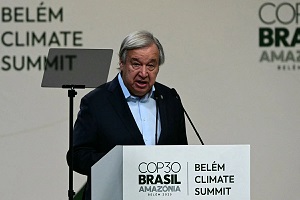Internal shifts test resilience of Jordan’s post-reform party landscape
The Jordan Times
AMMAN — The Independent Election Commission (IEC) said it has recently received a notable wave of resignation requests from members of several political parties, including a significant withdrawal from the Jordanian Democratic Civil Party.
Secretary-General of the Party Register Ahmad Abu Zaid said the commission is processing the requests in line with the Political Parties Law, while monitoring their potential impact on each party’s legal standing.
The resignations arrive at a delicate moment for Jordan’s post-reform political landscape. Parties established after the 2022 modernisation package expanded rapidly, but many are now confronting the more complex stage of organisational consolidation, a phase that analysts said is exposing structural gaps in party culture, internal coherence and programmatic identity.
In remarks to The Jordan Times, Abu Zaid stressed that the withdrawals fall within the scope of legitimate political choice.
“The recent resignations submitted by several party members are individual rather than collective, and every member has the constitutional and legal right to withdraw from any political party,” he said.
The commission, he added, processes resignations in the same way it approves new memberships and is “not mandated to investigate or disclose the reasons behind them.”
Abu Zaid warned, however, that “a large number of resignations from a single party could affect its compliance with the membership thresholds required by the Political Parties Law”.
“In such cases, the IEC may suspend financial support until the party restores its legal status.”
Former MP Mayada Shreim offered a broader reading of the developments, saying they should not be interpreted solely as signs of party weakness.
“I do not see the recent wave of party resignations as necessarily negative. Resignation is a natural and legally protected right, and such developments occur in every political system,” she said.
“Jordan’s party experience is still in an early, formative stage, especially after the first party-centred parliamentary elections in many years.”
Shreim underlined that political parties require time and adjustment to mature. “No party system reaches full stability overnight. Building trust, internal clarity and merit-based political work takes time, and early fluctuations should be expected in any new partisan environment.”
The Jordanian Democratic Civil Party, founded two years ago during the modernisation process, emerged as part of a broader wave of new political movements aiming to strengthen parliamentary representation. However, the resignation of more than half of its founding general assembly has highlighted the challenges facing parties formed during the rapid post-reform expansion.
Observers said that while the reforms encouraged the creation of many new parties, several of these entities are still working to activate local branches, consolidate membership bases and articulate clear political programmes, essential components for long-term viability
They argued that as Jordan’s party system moves into a new phase, the recent resignations may reflect a natural adjustment rather than a breakdown.
The coming months will show whether these parties can stabilise, rebuild their internal structures and reconnect with their people, or whether the political scene will gradually consolidate into fewer, stronger and more clearly defined blocs, they said.
Latest News
-
 'We have failed' to keep warming under 1.5C, UN chief tells COP30
'We have failed' to keep warming under 1.5C, UN chief tells COP30
-
 Hizbollah rejects any negotiations between Lebanon and Israel
Hizbollah rejects any negotiations between Lebanon and Israel
-
 UK lifts sanctions on Syrian President Ahmed al-Sharaa
UK lifts sanctions on Syrian President Ahmed al-Sharaa
-
 King to start visit to Japan on Saturday, first stop on Asian working tour
King to start visit to Japan on Saturday, first stop on Asian working tour
-
 ‘Israeli’ army announces new wave of attacks on Lebanon
‘Israeli’ army announces new wave of attacks on Lebanon